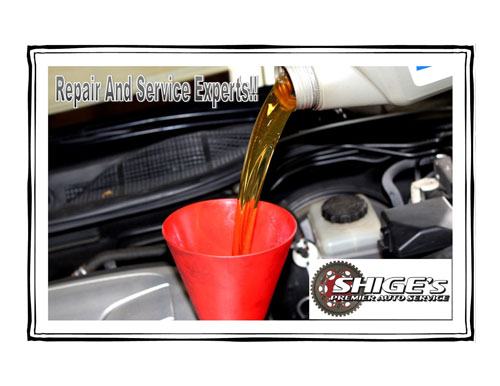
Engine Oil: Proper Lubrication
Everyone needs proper hydration for their bodies to keep up with the day to day activities. Water is absolutely essential for the circulation of blood through our veins and arteries. As humans, we must maintain a delicate balance of water and minerals to maintain homeostasis. We have neural pathways with centers in the brain that are continually processing information that affects our blood pressure, hormones, digestive organs and much much more. Dehydration can cause many ill effects on our cognitive function that will induce symptoms of fatigue, blurred vision, and headaches. It can also cause serious damage to very important internal organs such as the kidneys and liver, which can in worst cases, lead to death.
What Does This Have To Do With My Vehicle?
Your vehicle necessitates the same type of hydration in a sense, as well. Fortunately, as humans, we only really need water to keep us properly hydrated. But, your vehicle on the other hand necessitates several different types of fluids to keep all the parts lubricated and running smoothly. There is engine oil, of course, transmission fluid, coolant, also known as antifreeze, brake fluid and last but not least, power steering fluid.
The engine in your vehicle has numerous moving parts to it. Those parts work together and often do rub together, which creates friction and heat. The engine oil does two very important things for the engine. It lubricates all the moving parts and absorbs the heat that is created by friction, which is very important to the life of your engine. No one wants their engine to overheat!
Over time, as your oil has been absorbing all the heat that is being created by use, it begins to break down and becomes too viscous. When this happens, the engine oil is unable to absorb anymore heat and can start to smoke. Particles from normal engine use can build up in the oil and can reduce oil flow. This is why your oil filter is essential. Some older vehicles are known to leak oil or burn oil, as well. So, this is why one should be in the habit of always checking the oil level.
How Long Can Your Vehicle Go Without An Oil Change?
There are many factors that will lead you to be able to determine how often you should be changing your oil. One factor is the type of conditions you drive in. Another factor is what type of mileage are you putting on the vehicle and what type of driving you do. Do you have a long commute? Do you drive all freeways or do you just drive streets with a lot of accelerating and braking?
Most new vehicles today can go 6,000 miles or more before an oil change is necessary. But, that does not mean that you can ignore the oil. You should always be checking your oil to make sure you have enough oil in your engine, as well as the quality of the oil. The oil should appear clean and not completely black. If it is black, then it is time to change the oil regardless of mileage.
When In Doubt, Check It Out!!
It is your responsibility to be always checking your oil to make sure there is enough in your engine.
It only takes a few seconds to check and add some in case your oil level is low. But, it is completely understandable if you do not have time, or your not comfortable doing it. Shige's Premier Auto will do it for you! Give us a call or make a reservation for your vehicle online at ShigesPremierAutoService.mechanicnet.com and we will perform a full comprehensive courtesy inspection!